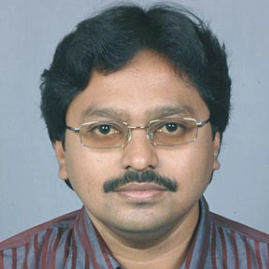
M.A. Saleem Durai
Work place: School of Computing Science and Engineering, VIT University, Vellore, India
E-mail: masaleemdurai@vit.ac.in
Website:
Research Interests:
Biography
M. A. Saleem Durai received theMCA from Bharathidasan University,Tiruchirapalli, Tamilnadu, India in 1998; M. Phil. from from Madurai Kamaraj University, India in 2008 and pursuing his PhD at VIT University Vellore. He is an Associate Professor in the School of Computing Sciences and Engineering at VIT University, Vellore, Tamilnadu, India. He has authored many International and National journal papers to his credit. His research interests include data mining, fuzzy logic, cloud computing and rough sets. Mr. Saleem Durai is associated with many professional bodies CSI and IEEE.
Author Articles
Rough Set Model for Nutrition Management in Site Specific Rice Growing Areas
By K. Lavanya N.Ch.S.N. Iyengar M.A. Saleem Durai T. Raguchander
DOI: https://doi.org/10.5815/ijisa.2014.10.10, Pub. Date: 8 Sep. 2014
The optimized fertilizer usage for better yield of rice cultivation is influenced by key factors like soil fertility, crop variety, duration, season, nutrient content of the fertilizer, time of application etc., It is observed that 60 percent of yield gap in tamilnadu is due to farmers lack of knowledge on key factors and informal sources of information by pesticide dealers. In this study the major contributing factors for fertilizer requirement and optimum crop yield were analyzed based on rough set theory. In data analytics perspective the nutrient plan is sort of multiple attribute decision-making processes. To reduce the complexity of decision making, key factors that are indiscernible to conclusion are eliminated. Our rough set based approach improved the quality of agricultural data through removal of missing and redundant attributes. After pretreatment the data formed as target information, then attribute reduction algorithm was used to derive rules. The generated rules were used to structure the nutrition management decision-making. The precision was above 88% and experiments proved the feasibility of the developed decision support system for nutrient management.
[...] Read more.Other Articles
Subscribe to receive issue release notifications and newsletters from MECS Press journals